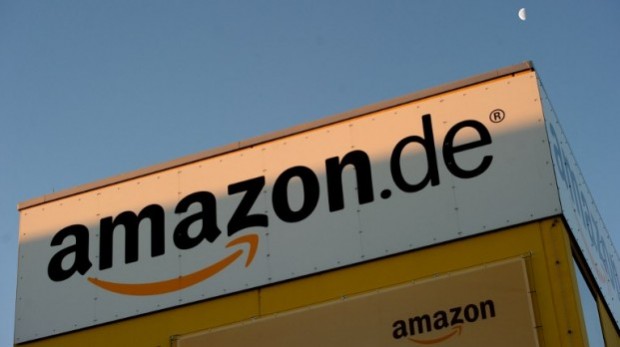Amazon flies high in the Internet cloud
SAN FRANCISCO, United States—Amazon is widely known for its prowess as an online retail colossus, but is also thriving when it comes to sending business aloft in the Internet cloud.
Cloud computing is among the fashionable and fast-growing technology trends, with familiar services ranging from free email to streaming Netflix television reliant on the concept.
Internet industry giant’s have long been plowing cash into massive data centers and green energy sources to power cloud computing that essentially lets them use massive computing power to provide data and services to Internet-linked devices.
While titans including Apple, Google, and Facebook have resources and reasons to build their own data centers, it is more common for companies to spare themselves the cost and trouble by “renting” server space from cloud computing operations such as Amazon Web Services.
Ranks of cloud computing rivals range from specialty firms such as Rackspace to century-old technology veteran IBM, which is working to differentiate its offering by mixing in the smarts of its Jeopardy game winning Watson artificial intelligence.
“There is a huge race now to dominate what is called the public cloud,” said Forrester analyst Dave Bartoletti.
“It is these giant data centers where any company can run applications and just rent infrastructure.”
Amazon “pretty much invented this market,” getting into the cloud computing business about a decade ago, according to the analyst.
Raining profit
Amazon has poured money into building data centers, and surprised the market this year with word that its AWS subsidiary had a profit margin that soared during the first nine months of this year while revenue leapt 70 percent to $5.5 billion.
Analysts believe that AWS handles about half the world’s public cloud business.
“AWS made the market its own” by the time rivals stepped in to challenge the company, according to Synergy Research Group analyst John Dinsdale.
“Importantly, AWS has remained extremely aggressive in investing in its network; new service development, and pricing so that it has stayed ahead of its competition,” Dinsdale told AFP.
While building up cloud computing infrastructure, AWS also ramped offerings with capabilities such as database management or help designing applications for the hot mobile market.
– All-around threat -“Amazon has moved from just being a threat to people who run their own data centers to threatening any company that makes any type of technology, whether that’s Oracle or IBM or HP or Dell,” said Bartoletti.
The heads of tech industry powerhouses Microsoft, Oracle, and Hewlett Packard in recent weeks have openly nodded to Amazon’s prowess in the cloud.
Microsoft chief Satya Nadella cited Amazon as its only rival in the cloud that is innovating at a massive scale.
Oracle founder Larry Ellison took aim at Amazon as its adversary instead of historical rivals like IBM and SAP.
HP boss Meg Whitman described Amazon as being “too far ahead” in the booming sector of cloud services.
Forrester expects the cloud to remain on fire for at least five years, with growth rates topping 30 percent. Many companies are likely to grab for a piece of the cloud’s gold lining, but few will be able to stand up against Amazon, according to analysts.
Few shall rule
The strongest challenge at the moment is Microsoft, which has an Azure division devoted to the cloud.
Nadella has made a priority of software, services and platforms hosted in the cloud. Microsoft hoped to get a foot up by building on its relationships with businesses who have long relied on the US firm’s software.
Further behind in the race to the cloud is Google, which has a formidable array of data centers around the world but they are known more for what they offer to consumers than businesses.
IBM is also striving to catch up, investing heavily in the cloud but not yet gaining enough ground to offset losses in sectors where the century-old US firm once flourished.
Analyst Bartoletti predicted that the cloud market would eventually be ruled by three to five global actors, with a secondary market taking shape with small local providers.
“It is tough to see any meaningful challengers to the big four at the moment,” said analyst Dinsdale.
“For sure, there will be a lot of consolidation.”
RELATED STORIES
Amazon shares catch fire on surprise profit
